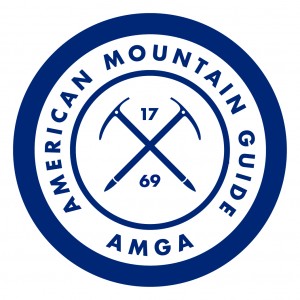Chasing the Sun
Having climbed ice since the 90’s, I barely touch the medium these days as it’s now simply a small part of the mixed regime. As with all disciplines of climbing, there is evolution. When leash-less tools began the mixed climbing rage, I made the decision to get involved.
Jeff Lowe needed help setting a competition route in Jan 2001. I was a neophyte route setter and a wanna-be hard mixed climber, but I was all he had since I was living in Ouray and was the only person he could find the day before the competition who had a drill. I met many of my heroes like Hary Berger, Sue Knott, Karen McNeil, Will Gadd, and Guy L’Celle and became inspired. They all were strong climbers and all super nice people. I belayed in future competitions and I realized that I could do what they were doing, climbing crazy and seemingly impossible lines in overhanging terrain.
And so it happened. I morphed into an ice junkie gone wild. The competition circuit became a new familiar scene, but I took it to the next level to test my metel and decided that competing Nationally wasn’t enough. I entered into the UIAA Ice World Cup circuit where there is anywhere between 4-6 competitions per year, one in each sponsoring country comprises the venues. I go nearly every year on an around-the-world tour of these competitions competing in lead and sometimes speed.
I travel from New Mexico to South Korea, Romania, Switzerland, Italy, France, and Russia, chasing the sun on the flights against the jet stream to go to these competitions. Am I crazy? Perhaps, but there is way more to it than just the competition.
Fair to say that I got an education over the past 5 years on what hard climbing is like, not just from the competitions, but from all the cool mixed rock and ice crags I got to climb at while on the competition circuit. I also realized that North America had fallen far behind the European and Asian levels in terms of mixed climbing. We definitely have our strong rock climbers, but there are no ice climbers that can presently compete as a possible podium contender at the World Cup, myself included. Although a bold statement, this is unfortunate, since Bozeman will be the host to next year’s first-ever USA World Cup.
I’ve seen several 5.14 rock climbers come and go on the mixed climbing scene. Just because you’re strong doesn’t mean that you will do well in this sport, there’s way more involved in this very powerful and technical form of climbing. Perhaps I’m wrong and someone will step forward and be the next Markus Bendler (Austria) or one of the Tomilov Brothers (Russia), but I won’t hold my breath. Yes, that’s a challenge. I’m a bit late coming into the game and have too many other priorities to give what it takes, although I secretly try.
The quaint Southern Tyrol Alps village of Rabenstein is hidden deep within Northern Italy and was home to the third Ice World Cup of 2013, a first time occurrence. What’s not new is Angelika Rainier bested all other competitors in front of her hometown crown. This was also the official last World Cup that Markus Bendler will participate in as he leaves competition climbing for another life as he opens a new retail mountain shop in Austria. The late Hari Berger, one of the most acclaimed hard ice climbers in recent history, mentored Markus. Now, after more than a decade and over 30 World Cup titles, Markus steps into the history books as the Michael Jordan of mixed ice climbing. Only since 2012 have the Russians and a sole Korean, Park Hee Young, been able to compete with Bendler.
No matter, the spirit of the competition is alive, and flags and anthems represent the athletes on the podium. But at the end of the day, there is a camaraderie among all the athletes that transcends multiple language barriers and skill levels. The best athletes want the other competitors to rise to their best, so climbing secrets and technical advances in modifications of equipment are exchanged. Big leaps in athlete’s performance are rare, but it can and does occur.
Now, in 2014, the UIAA has made a long and arduous effort to showcase ice climbing as a Demonstration Sport in Sochi, Russia. This event, and those who represent their country as an athlete ice climber, will hope to usher in ice climbing as a full Olympic Sport in the coming years.
Those who have been on the UIAA World Cup Ice Climbing Competition circuit area “winter family” of sorts. We all travel from country to country every week to compete. There can be only one World Cup per Country per year. This lends itself for being a world-ice-climbing connoisseur and provides for insight not otherwise gained form residing and climbing on a single continent, alone.
Competing against others pushes me, hard. I become a better climber and have a great excuse to not turn into a couch potato. Being from New Mexico, Ouray, CO is my mainstay of real ice to climb. I spend most of my time training in my home gym, a 2-car garage with a woody at my apartment, when friends aren’t camping out on the mats on their visit. Erin Weber uses a laser pointer to “bossy light” me around the wall on focused techniques and movement, training only for World Cup-specific climbing on World Cup-specific holds. There are lots of nuances and I’m still learning and trying to keep up with the younger competitors form the other side of the world.
I’ve been fortunate enough to sustain the long trips, the financial hardship, and steep learning curve, to continue to play in this arena. My hope is that this year there will be a birth of an ice climbing Olympic sport. Why? Good question, and I’ve got my opinions.
I love this sport. It’s fun, and it pushes my to be better. I have to rise to the occasion, the climb, and the ever-changing environment. This type of climbing is only one aspect, but I believe it has a place at the Olympics. Look at what constitutes an Olympic sport and ice climbing encompasses all of those traits. Ice climbing is an excellent spectator sport. In fact, spectators could be in a heated environment enjoying a beverage while the competitors are in full blizzard conditions. The difficulty event is dynamic and athletic, even though it is strenuous. The speed climbing event is a race, and most people like a good race.




